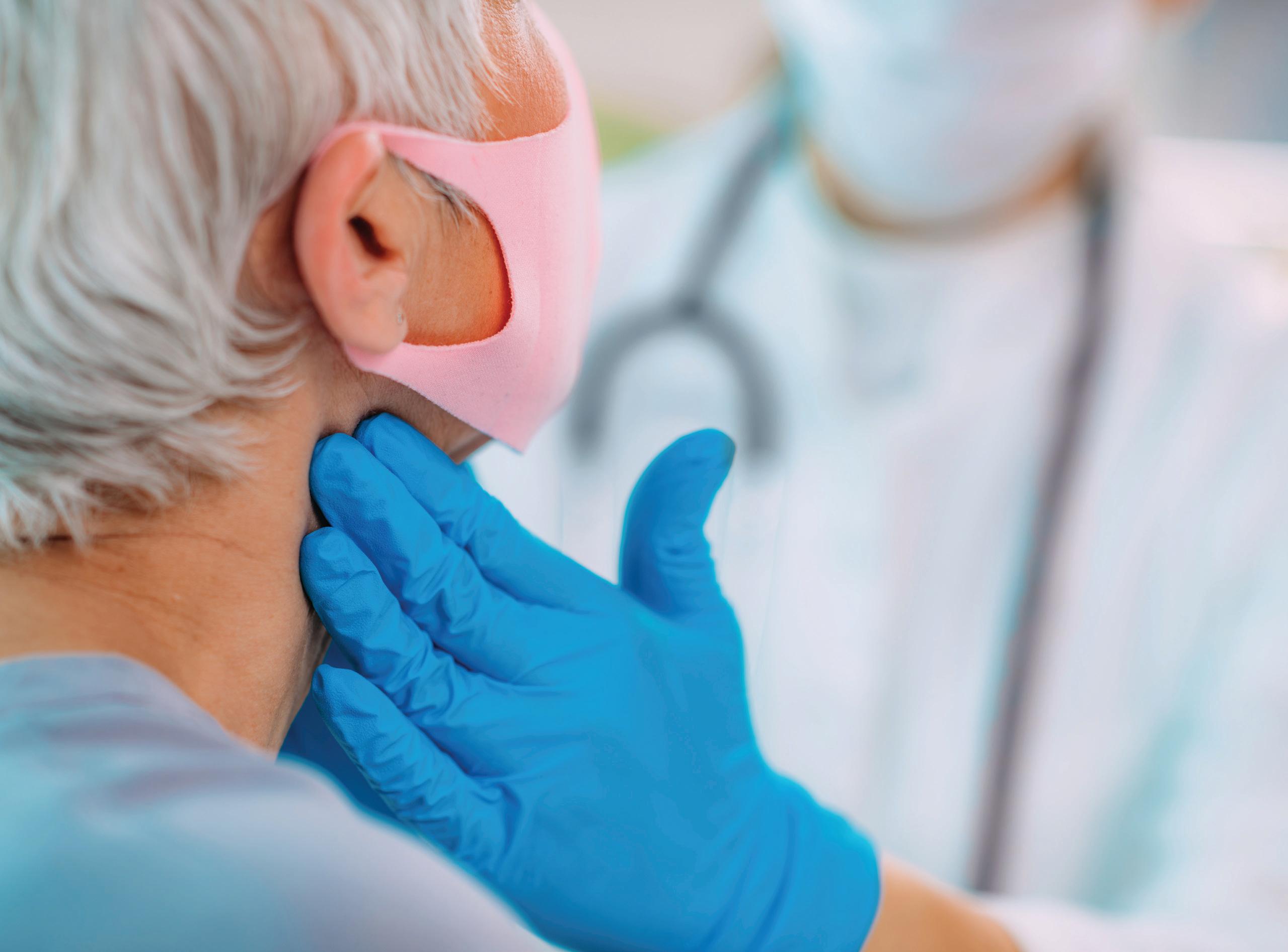
4 minute read
BALANCING ACT Endocrinologists keep the body in balance by treating hormonal disorders.
Balancing ACT
ENDOCRINOLOGISTS KEEP THE BODY IN BALANCE BY TREATING HORMONAL DISORDERS.
HORMONES ARE CHEMICAL messengers that play important roles in the body. Examples include cortisol, which triggers stress reactions; insulin, which helps the body absorb glucose (sugar); and estrogen and testosterone, female and male sex hormones that influence everything from physical development to mood.
Hormones are made by a network of glands called the endocrine system. When there’s a problem with the body’s ability to produce or use hormones, the impact can be serious. The medical specialty that manages diseases of the endocrine system is known as endocrinology. Here, Robert Cooper, MD, FACE, FACP, who recently joined the HMC Endocrinology & Diabetes Center, answers common questions about his specialty.
WHAT IS AN ENDOCRINOLOGIST?
Endocrinologists are medical specialists trained in the endocrine system, which controls hormones. Hormones travel through the bloodstream to tissues and organs, where they help regulate metabolism, reproduction, movement, sexual development and more. When the glands producing hormones don’t function correctly, diseases can develop.
WHAT CONDITIONS DOES AN ENDOCRINOLOGIST TREAT?
Common conditions include: • Diabetes • Osteoporosis • Calcium disorders • Thyroid disease • FNA for thyroid nodules • Adrenal and pituitary conditions • Polycystic ovary syndrome • Male hypogonadism • Female hyperandrogenism
WHY CHOOSE AN ENDOCRINOLOGIST?
Although most primary care providers can address basic hormonal conditions, a referral to an endocrinologist is often needed for more complex cases. Having completed advanced training, they're experts at identifying and treating endocrine problems. Some of these specialists treat a range of disorders,
ARE THERE FACTORS THAT INCREASE RISK?
Yes. Factors that increase a person’s risk of developing an endocrine disorder include: • Elevated cholesterol levels • Family history of endocrine disorder • Inactivity • Personal history of autoimmune disorders • Poor diet • Pregnancy • Recent surgery, trauma or infection
WHAT ARE SOME COMMON SYMPTOMS?
Endocrine disorders can produce an array of symptoms, including: • Severe exhaustion or weakness • Extreme thirst or hunger • Unexplained weight loss or gain • Mood changes • Blood glucose level fluctuations • Frequent urination • Joint and muscle pain • Nausea or stomach pain
HOW ARE ENDOCRINE DISEASES DIAGNOSED?
Because symptoms often mimic those of other conditions, endocrine diseases can be challenging to diagnose. In addition to in-depth discussion with patients, doctors use urine tests, imaging studies, genetic testing and hormone testing to make an accurate diagnosis.
ARE THERE TREATMENT OPTIONS?
Yes! Treatment depends on the specific disorder, but is focused on relieving symptoms and adjusting hormones with medications. If surgery is indicated, a referral will be made to a surgical endocrinologist. Some issues, such as thyroid nodules, are monitored with regular testing.
The HMC Endocrinology & Diabetes Center is located at 10 Hospital Drive, Suite 104. To make an appointment, please call 413.534.2820.
Robert Cooper, MD, FACE, FACP Pam Ohri Zizzamia, DO Ana Ronderos, ANP
AN EXPERIENCED ENDOCRINOLOGIST RETURNS TO HMC
Robert Cooper, MD, FACE, FACP , who worked at Holyoke Medical Center (HMC) from 2003 to 2012 and was chief of medicine from 2005 to 2009, is happy to be back seeing patients at the HMC Endocrinology & Diabetes Center. An endocrinologist for 25 years, Dr. Cooper brings vast expertise to the HMC community. “My focus has always been on providing academic-type medicine to smaller communities,” says Dr. Cooper. His experience includes temporary positions in underserved locations in South Dakota and Pennsylvania. “Those were fascinating experiences,” he says. “I taught primary care providers more about endocrinology so they could better care for their patients locally.” Dr. Cooper feels strongly that a good physician is a good listener and a good teacher. “Interviewing skills are important when making a diagnosis,” he says. Dr. Cooper has found that, once he determines the cause of a patient’s symptoms, how he communicates is critical. “It’s not just having knowledge about a disease,” he says, “it’s being able to bring that expertise to a level that patients truly understand.”
CUTTING-EDGE CARE
A graduate of Albert Einstein College of Medicine, Dr. Cooper completed a residency at Long Island Jewish Medical Center. Subsequently, he completed a two-year endocrinology fellowship at Long Island Jewish Medical Center and Winthrop University Hospital. Dr. Cooper holds a teaching position at Tufts University School of Medicine and is a Fellow of both the American College of Endocrinology and the American College of Physicians. “I attend a lot of conferences to keep up with cutting-edge medical treatments,” says Dr. Cooper. “I love bringing what I’ve learned back to my colleagues and patients.” Dr. Cooper enjoys treating all types of endocrine diseases, including osteoporosis and thyroid, adrenal and pituitary disorders. He has a unique niche treating male hypogonadism, a condition in which a man’s body doesn’t produce enough of the hormone testosterone.
Dedicated to a multidisciplinary approach, Dr. Cooper collaborates with kidney and cardiac specialists for heart disease and cholesterol management. He’s excited to work with endocrinology specialists Pam Ohri Zizzamia, DO, and Anna Ronderos, ANP , as well as the rest of the team at the HMC Endocrinology & Diabetes Center. Dr. Cooper welcomes both former and new patients. “Medicine allows me to make a positive difference in people’s lives, and that brings great meaning to my own.”






